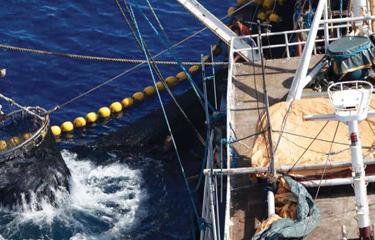Greenpeace Southeast Asia is claiming that 20 Indonesian manning agencies and 26 fishing firms from China, Hong Kong, Taiwan, Cote d’Ivoire, and Nauru are allegedly involved in forced labor practices against Indonesian migrant fishers.
The allegations were presented by the organization in a report released 31 May, “Forced Labour at Sea: The Case of Indonesian Migrant Fishers,” released in partnership with Indonesian migrant workers union Serikat Buruh Migran Indonesia (SBMI).
In interviews with Indonesian migrant fishers conducted between May 2019 and June 2020, Greenpeace said 87 percent said they had wages withheld, 82 percent reported abusive working and living conditions, 80 percent reported being deceived in order to perform more unpaid or underpaid labor, and 67 percent reported being taken advantage of for lacking knowledge of local language or laws. Indonesian migrant fishers over May 2019 - June 2020 along with relevant media reports.
One worker said he was not paid in accordance his contract, and others interviewed complained about having to work at sea for too long.
Greenpeace said it attempted to confirm its findings with the fishing companies involved, but that just three firms responded, and each denied all allegations against it.
“Alleged cases of forced labor to migrant fishers have been well-documented over the years with no signs of improving. In fact, we’re seeing cases and complaints increase,” Greenpeace Southeast Asia’s Regional Oceans Research Coordinator Ephraim Batungbacal said.
Greenpeace called for the implementation of measures to combat forced labor at sea, as well as illegal, unreported and unregulated (IUU) fishing.
Greenpeace said it documented 62 reported cases of forced labor on 45 separate vessels in the latest report, which is much higher than 34 cases found on 13 vessels in its 2019 report “Seabound: The Journey to Modern Slavery on the High Seas.”
“Whether through increased awareness by migrant fishers to report, or indeed, more prevalent cases of forced labor, these numbers suggest vulnerable migrant fishers continue to be taken advantage of,” Batungbacal said. “Those involved in forced labor must be prosecuted and dealt swiftly at every segment of the supply chain. Forced labor and cheap labor is a ‘hidden cost’ in the seafood industry, but we cannot hide this anymore.”
SBMI Chairman Hariyanto accused law enforcement officers of a “lack of commitment,” accusing Indonesian authorities of failing to follow up on numerous forced labor complains filed through the organization since 2014.
“What’s been happening is that it takes very long for one case to finish and it makes the victims even more vulnerable. They are tired and the legal proceedings stray them further from their restitution rights. In the end, they become victims twice,” Hariyanto said.
Photo courtesy of Greenpeace







